

Articles
How To Store Books In A Storage Unit
Modified: January 7, 2024
Looking to store your book collection? Discover expert tips and tricks on how to safely store books in a storage unit. Read our helpful articles now!
(Many of the links in this article redirect to a specific reviewed product. Your purchase of these products through affiliate links helps to generate commission for Storables.com, at no extra cost. Learn more)
Introduction
Books are not just a source of knowledge and entertainment; they often hold sentimental value and are cherished possessions for many people. However, as our lives change and our living space may become limited, storing books in a storage unit can be a practical solution. Whether you’re downsizing, moving, or simply need to declutter your home, knowing how to store books properly will ensure they remain in optimal condition.
In this article, we will guide you through the process of storing books in a storage unit. We will discuss how to choose the right storage unit, preparing the books for storage, organizing them effectively, ensuring proper climate control, protecting them from damage, maximizing space, and periodically checking and maintaining your books.
By following these guidelines, you can rest assured that your beloved books will be safe and well-preserved during their time in storage.
Key Takeaways:
- Safely store books in a storage unit by choosing the right unit, preparing books properly, and organizing them effectively. Maintain climate control, protect from damage, and maximize space to ensure your beloved books remain in excellent condition.
- Regularly check and maintain your stored books to prevent damage. Monitor climate conditions, protect from pests, and maximize space to ensure your books remain in optimal condition throughout their time in storage.
Read more: How To Store Books In Storage
Choosing the Right Storage Unit
When it comes to storing your books, selecting the right storage unit is crucial. Here are a few factors to consider:
- Size: Evaluate how many books you need to store and choose a storage unit that provides enough space. Consider the possibility of expanding your collection in the future, so opt for a slightly larger unit if needed.
- Climate control: Books are susceptible to damage from extreme temperatures and humidity. Look for a storage facility that offers climate-controlled units to maintain a consistent and optimal environment for your books.
- Security: Ensure that the storage facility has adequate security measures in place, such as surveillance cameras, secure access, and reliable locks. This will give you peace of mind knowing that your books are protected.
- Accessibility: Consider how often you may need to access your books. Choose a storage unit that offers convenient access hours or allows you to retrieve your items when needed.
- Location: Pick a storage facility that is easily accessible from your home or workplace. This will make it more convenient for you to visit the storage unit whenever necessary.
- Reviews and recommendations: Before making a final decision, research and read reviews of the storage facilities you are considering. Pay attention to feedback regarding customer service, cleanliness, and overall satisfaction.
It is important to visit potential storage facilities in person if possible. This will give you the opportunity to assess the cleanliness, organization, and overall condition of the units. Take note of any signs of pests, mold, or water damage, as these can be harmful to your books.
By being thoughtful and thorough in your selection process, you can find a storage unit that meets your needs and provides a safe and suitable environment for storing your books.
Preparing the Books for Storage
Before you pack your books for storage, it’s important to properly prepare them to minimize the risk of damage. Follow these steps:
- Clean the books: Dust and debris can accumulate on book covers and pages over time. Use a soft cloth or brush to gently remove any dirt or dust from the surface of the books. This will prevent any potential damage that may be caused by trapped particles.
- Inspect for pests: Before storing your books, check for signs of pests like silverfish or bookworms. If you spot any, take appropriate measures to eliminate them to prevent further damage to your collection.
- Remove bookmarks and inserts: Take out any bookmarks, sticky notes, or other inserts from between the pages of your books. These can cause pages to warp or stick together over time.
- Pack books in acid-free materials: Acid-free materials, such as archival-quality boxes, acid-free paper, or acid-free plastic storage bags, are essential for preserving your books’ condition. Avoid using materials like newspaper or cardboard, as they can transfer acids and lead to deterioration.
- Wrap fragile books individually: For particularly delicate or valuable books, consider wrapping them individually in acid-free tissue paper or bubble wrap. This provides an extra layer of protection against any potential damage during storage and transit.
- Arrange books upright: When placing books in boxes or on shelves, position them upright like they would be on a bookshelf. This reduces the strain on the spines and prevents warping or bending of the covers.
- Label boxes: Clearly label each box with the genre, author, or any other relevant information to easily locate specific books later. This will save you valuable time when retrieving books from storage.
By following these steps, you can ensure that your books are properly prepared for storage, minimizing the risk of damage so they can be enjoyed for years to come.
Organizing the Books in the Storage Unit
Properly organizing your books in the storage unit will not only make it easier to locate specific titles but also help to prevent damage and maintain the condition of your collection. Here are some useful tips for organizing your books:
- Sort by category or genre: Group books together based on their category or genre. This could be fiction, non-fiction, reference books, or any other relevant categorization. This will make it easier to find books within specific genres when needed.
- Arrange books alphabetically: Within each category or genre, organize books alphabetically by author or title. This systematic arrangement will allow you to quickly scan through your collection and find the desired book without much effort.
- Utilize storage boxes or bookshelves: Depending on the size and quantity of your book collection, consider using storage boxes or bookshelves to keep them organized. Clear plastic storage boxes are a great option as they provide protection while still allowing you to see the spines of the books.
- Leave space for ventilation: Avoid overcrowding the shelves or storage boxes to allow for proper ventilation. Adequate airflow will help prevent the buildup of moisture and protect your books from potential damage caused by mildew or mold.
- Keep frequently accessed books within reach: If you anticipate needing certain books more frequently than others, place them at the front of the storage unit or on the upper shelves for easy access.
- Create a catalog: Consider creating a catalog or inventory of your book collection. This can be a simple digital document or a dedicated app that lists the titles, authors, and genres of each book. This will aid in keeping track of your collection and locating specific books when needed.
Remember to regularly maintain the organization of your books in the storage unit. Whenever you add or remove books, take the time to reorganize and ensure everything is arranged systematically. This will contribute to the longevity and accessibility of your collection.
When storing books in a storage unit, make sure to use sturdy, stackable boxes to protect them from damage. Store them in a cool, dry place away from direct sunlight to prevent mold and fading.
Storing Books with Proper Climate Control
Maintaining the right climate conditions is crucial for preserving the quality and longevity of your stored books. Here are some tips for storing books with proper climate control:
- Avoid extreme temperatures: High temperatures can cause book pages to yellow and become brittle, while low temperatures can make books prone to moisture damage. Aim to store your books in a climate-controlled storage unit where the temperature is maintained between 60-75 degrees Fahrenheit (15-24 degrees Celsius).
- Control humidity levels: Excessive humidity can lead to mold growth and deterioration of paper and bindings. Aim for a humidity level between 30-50% to prevent these issues. A dehumidifier or humidifier can help regulate humidity levels in the storage unit.
- Avoid moisture and dampness: Moisture can promote the growth of mold and cause irreparable damage to books. Make sure the storage unit is well-ventilated and free from leaks or moisture sources. Consider using moisture-absorbing products like silica gel packs or desiccants to absorb any excess moisture.
- Keep books away from direct sunlight: Sunlight can cause fading and discoloration of book covers and pages. Store books away from windows or use blinds or curtains to block out sunlight and protect your collection.
- Avoid environmental pollutants: Chemical pollutants such as smoke, fumes, or strong odors can permeate books and affect their condition. Keep books away from areas with potential pollutants to prevent any damage or unpleasant smells.
- Regularly monitor climate conditions: Use a digital thermometer and hygrometer to monitor the temperature and humidity levels inside the storage unit. Check these readings periodically to ensure that the climate conditions remain within the optimal range.
Note: If you’re storing valuable or rare books, consider consulting with a professional archivist or librarian for additional guidance on preserving their condition.
By storing your books in a climate-controlled environment and taking measures to control temperature, humidity, and exposure to sunlight and pollutants, you can help ensure that your books remain in excellent condition throughout their time in storage.
Read more: How To Store Books Without A Bookshelf
Protecting Books from Damage
Books are often fragile and can be easily damaged if not properly protected during storage. Taking the necessary precautions will help ensure your books remain in excellent condition. Here are some tips for protecting books from damage:
- Use bookends: Place bookends on both sides of the books to keep them upright and prevent them from leaning or falling over. This helps maintain the shape of the books and prevents unnecessary stress on the spines.
- Avoid stacking books too high: Stacking books too high can put pressure on the lower books, leading to bent pages, warped covers, or even collapsed bookshelves. Keep stacks of books at a manageable height to prevent damage.
- Protect corners and edges: The corners and edges of books are particularly vulnerable to damage. Consider using corner protectors or wrapping them in acid-free tissue paper or archival-quality plastic sleeves to prevent wear and tear.
- Store books upright or flat: Storing books upright on bookshelves or flat in boxes helps prevent warping or bending of the covers. Avoid storing books on their sides, as this can lead to stress on the spines and potential damage over time.
- Avoid using rubber bands: Rubber bands can cause creasing, indentation, and damage to the pages and covers of books. Instead, use acid-free paper or bookmarks to mark pages or keep books closed, if necessary.
- Protect against pests: Shield your books from pests by periodically inspecting the storage area for signs of infestation and using pest control methods if necessary. Consider placing pest repellent products, like mothballs or cedar blocks, in the storage unit to deter pests.
- Minimize handling: Excessive handling can lead to wear and tear, especially on older or delicate books. When retrieving or moving books, handle them with clean hands and support the spine and covers to prevent unnecessary stress.
- Store books in acid-free containers: Acid-free storage containers, such as archival-quality boxes or acid-free plastic sleeves, provide an extra layer of protection against moisture and environmental factors that can damage books over time.
- Keep books away from liquids: Water and other liquids can cause irreparable damage to books. Store them away from any potential sources of liquid, ensuring that leaks or spills are unlikely to reach the books.
By implementing these protective measures, you can safeguard your books from damage and ensure they retain their quality and value while in storage.
Maximizing Space in the Storage Unit
When using a storage unit to store your books, efficient space utilization is essential to make the most of the available area. Here are some tips for maximizing space in your storage unit:
- Use vertical space: Take advantage of the vertical space by using tall bookshelves or stacking storage boxes. This can help create additional storage levels and maximize the use of the unit’s height.
- Optimize shelf placement: Place shelves at appropriate intervals to accommodate different book sizes. Adjust the shelves accordingly to avoid wasted vertical space and ensure efficient use of the available area.
- Consider compact shelving: If you have a large collection of books, consider using compact shelving systems that can be easily adjusted to create more shelf space when needed. These systems allow for high-density storage and can be customized to fit your specific needs.
- Utilize storage containers: Use storage containers designed for books, such as stackable plastic bins or cardboard boxes, to store books efficiently. These containers can help protect your books while also maximizing space by allowing for neat stacking.
- Utilize gaps and corners: Fill in gaps in the storage unit with smaller books or miscellaneous items. Utilize corners effectively by placing taller or larger books in these spaces to make the most of the available area.
- Categorize and stack books: Group books according to categories or genres and stack similar books together. This not only saves space but also makes it easier to locate specific titles when needed.
- Store books horizontally when necessary: If you run out of vertical space, consider stacking some books horizontally on top of larger books or in between tall bookends. This can help maximize space while still keeping the books secure.
- Leave walkways: Create clear walkways in the storage unit to easily access different areas without having to move stacks of books. This ensures convenience and prevents damage to the books when retrieving or rearranging them.
- Don’t overstuff shelves or boxes: While it is important to maximize space, avoid cramming books onto shelves or into boxes as this can lead to damage and make it difficult to access or organize the books properly.
- Regularly reassess and reorganize: Periodically review your storage unit to identify any opportunities for further space optimization. As your collection changes or expands, make necessary adjustments to ensure efficient use of the available space.
By implementing these strategies, you can maximize the space in your storage unit and make the most of every square inch while keeping your books organized and easily accessible.
Periodically Checking and Maintaining the Books
Regularly checking and maintaining your books while they are in storage is essential to ensure their continued preservation. Here are some tips for effectively monitoring and maintaining your books:
- Schedule routine inspections: Set a regular schedule to inspect your storage unit and books. This can be done monthly or quarterly, depending on your preference. During these inspections, check for any signs of damage, pests, or environmental concerns.
- Examine for pest activity: Look for signs of pests such as droppings, chewed pages, or bookworm casings. If you detect any pest activity, take immediate action to eliminate the pests and prevent further damage to your books.
- Check for mold or moisture: Look for any signs of mold growth or moisture damage on the books. If you notice a musty smell or see discoloration or spots on the pages, it may indicate the presence of mold or excessive moisture. Address these issues promptly to prevent further damage.
- Inspect for water leaks: Check the storage unit for any signs of water leaks or damage. Water can cause irreparable damage to your books, so ensure that the storage unit remains dry and free from any water-related issues.
- Dust and clean: Regularly dust the book covers and shelves to prevent the accumulation of dirt and debris. Use a soft, lint-free cloth or a brush to gently remove any dust from the books. This will help maintain their appearance and prevent potential damage caused by trapped particles.
- Reorganize and restack: Take the opportunity during inspections to reorganize and restack your books if necessary. This ensures proper alignment and prevents any strain on the spines or damage from books leaning or falling over.
- Re-evaluate storage conditions: Periodically reassess the climate control and storage conditions. Check temperature and humidity levels to ensure they remain within the recommended range. Make any necessary adjustments to maintain the optimal environment for your books.
- Handle books with care: When accessing or moving books in the storage unit, handle them with clean hands and support the spine and covers to minimize any potential damage. Avoid bending or forcing books into cramped spaces, as this can lead to creased or torn pages.
- Consider book rotation: If you have a large collection, consider rotating the books periodically. This involves swapping out some of the books in storage with others from your home or personal library. This helps prevent prolonged storage and promotes better air circulation around your books.
- Document and update your inventory: Keep a detailed inventory of the books you have in storage. As you inspect and maintain your collection, update the inventory to have an accurate record of the books and their condition.
By regularly checking and maintaining your stored books, you can address any issues promptly and ensure that they remain in optimal condition throughout their time in storage.
Frequently Asked Questions about How To Store Books In A Storage Unit
Was this page helpful?
At Storables.com, we guarantee accurate and reliable information. Our content, validated by Expert Board Contributors, is crafted following stringent Editorial Policies. We're committed to providing you with well-researched, expert-backed insights for all your informational needs.
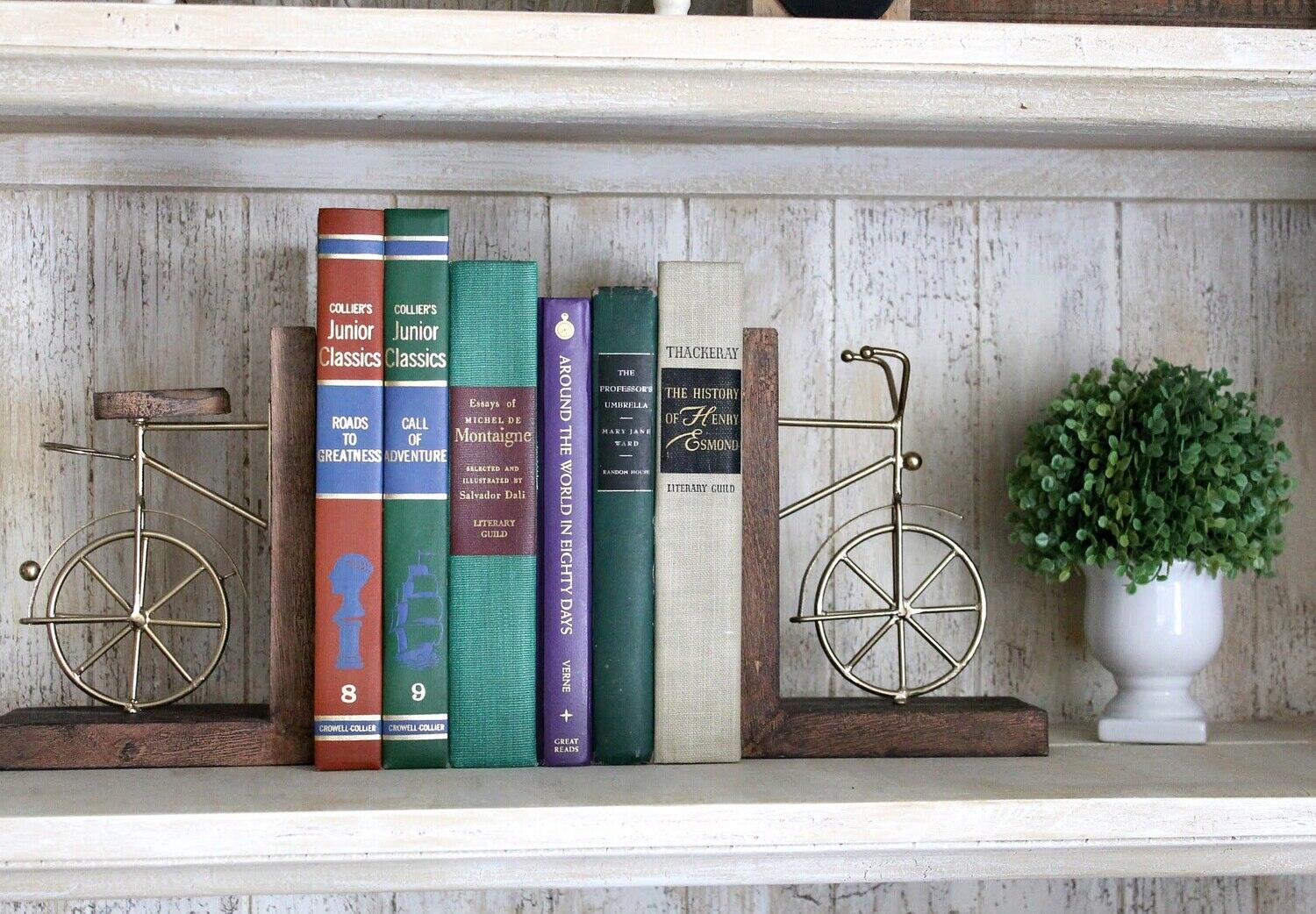



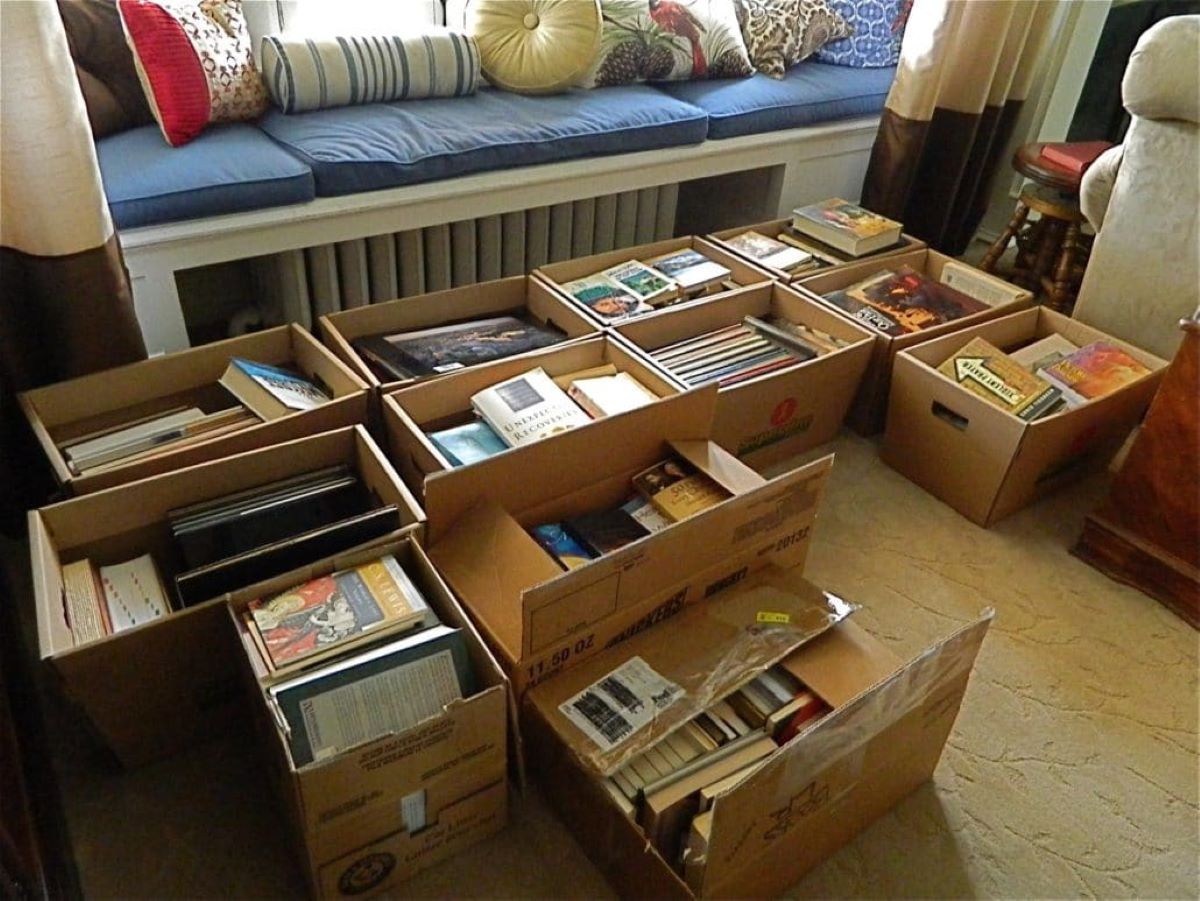
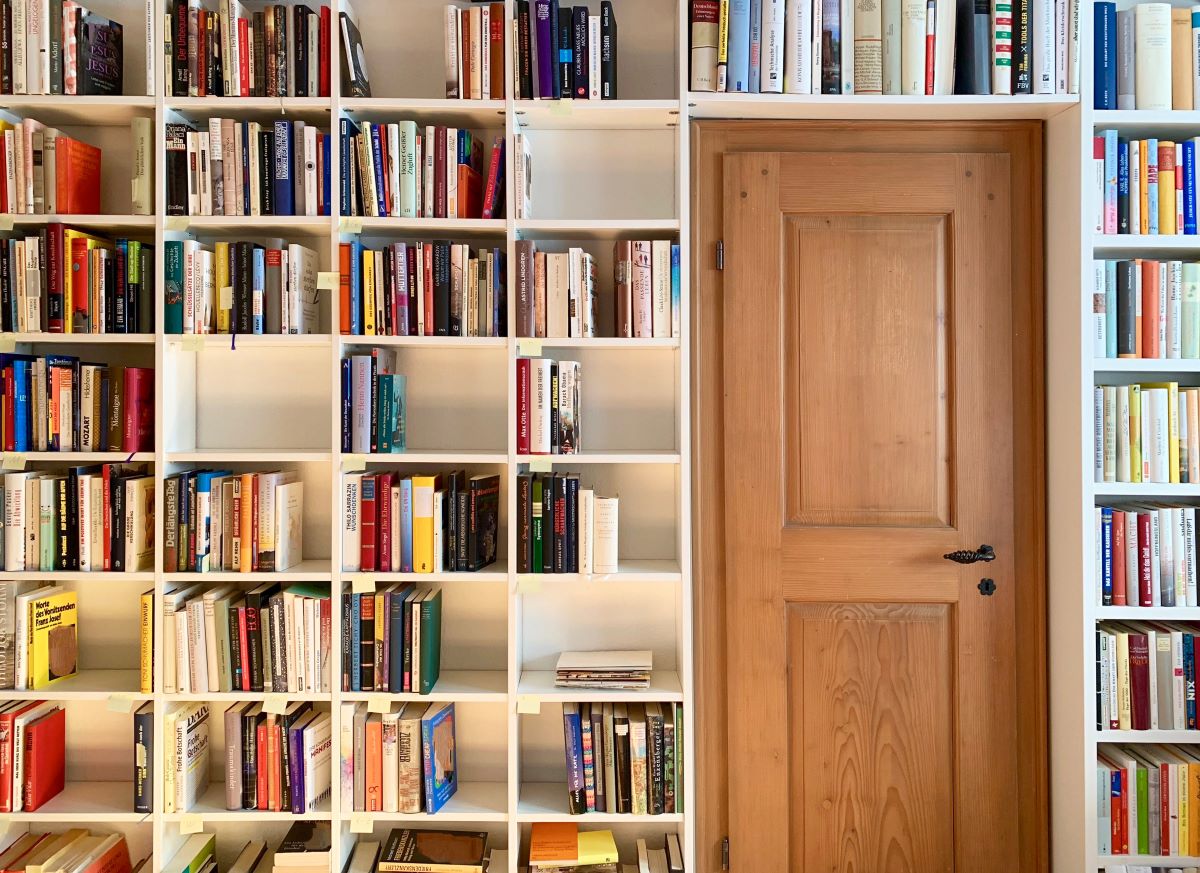
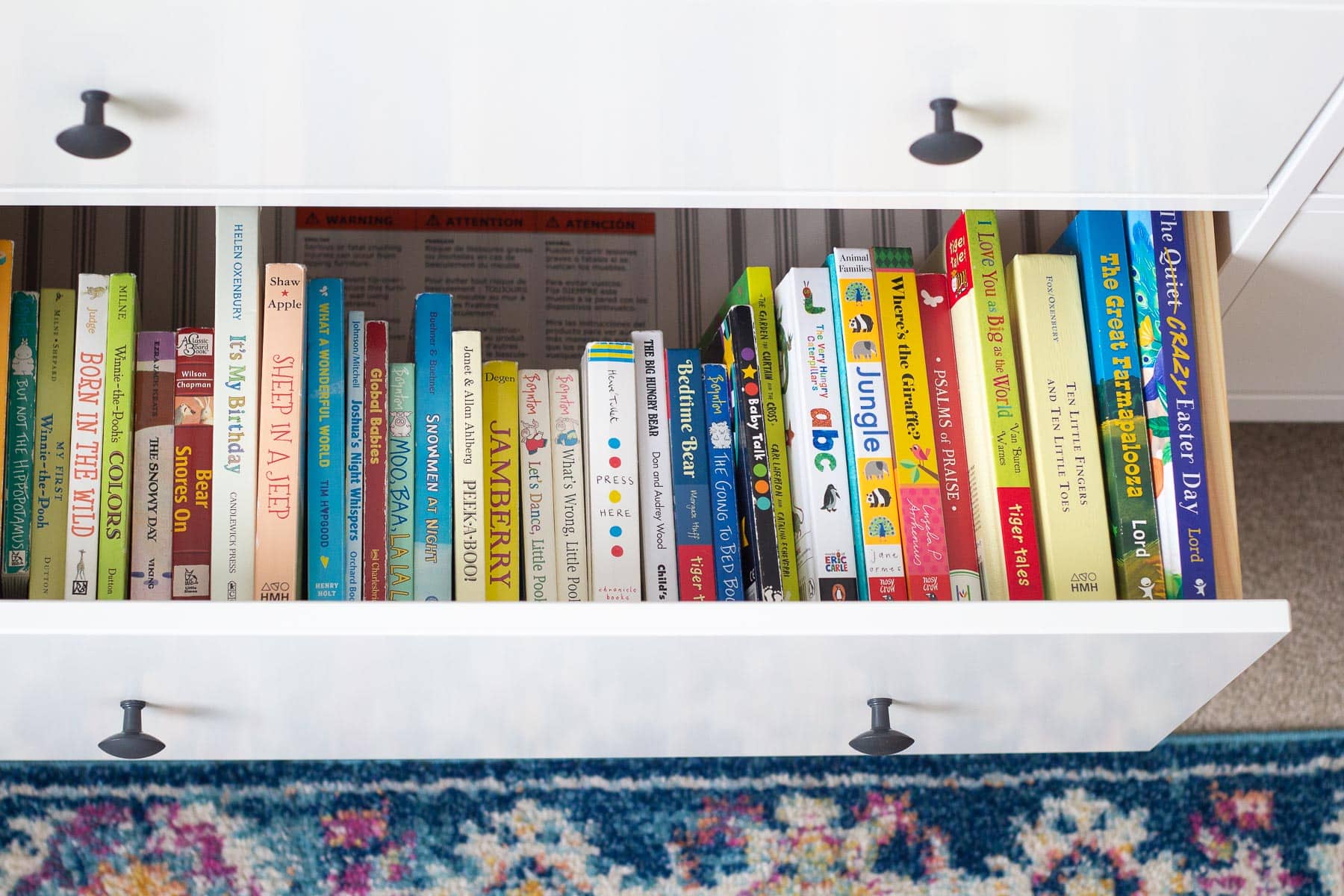





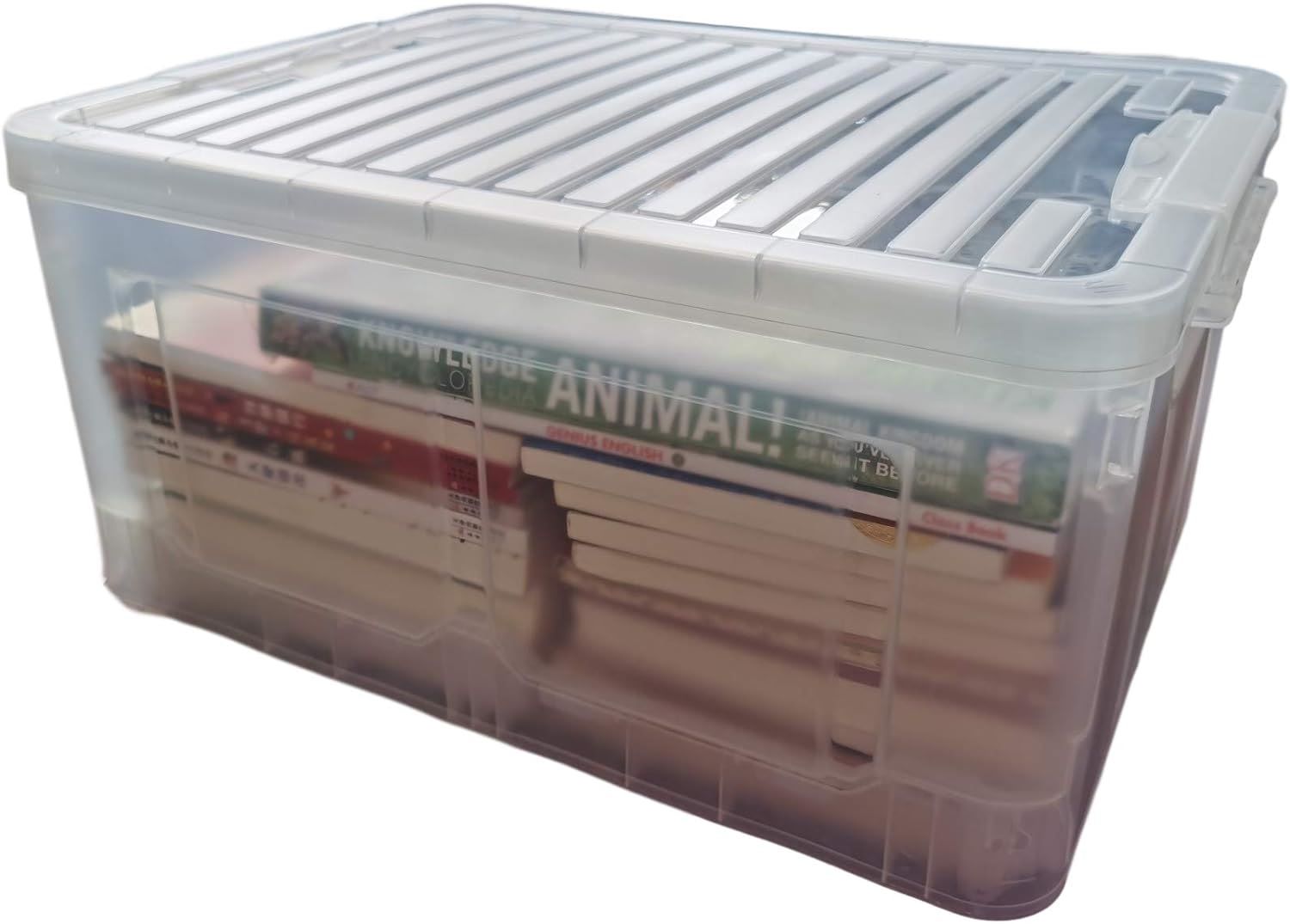


0 thoughts on “How To Store Books In A Storage Unit”